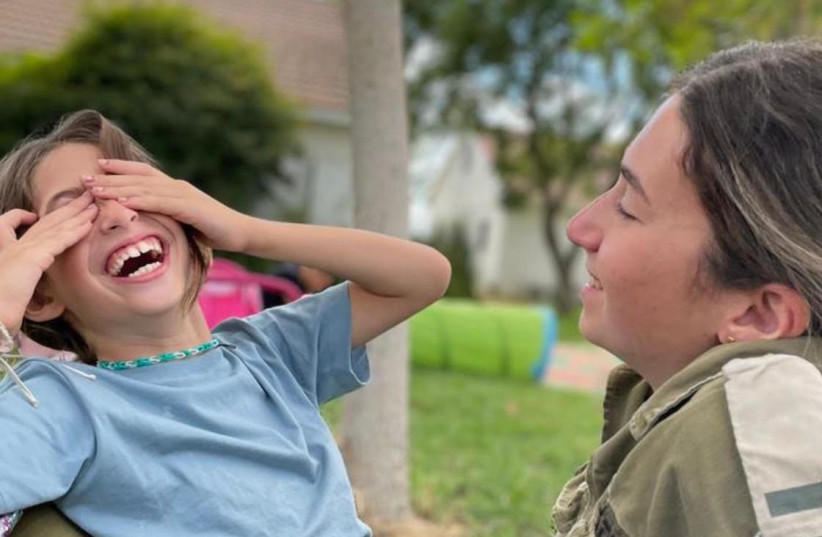Hamas’s terrorist attack on October 7 and the subsequent war forced many families to evacuate the region. They are spreading out across the country in hotels and other organized areas. This left thousands of children and teens unable to go to school or continue in their regular routines.
To help solve this problem, the Education Ministry set up temporary schools for displaced youth, and it is helping manage the children’s daily routines.
In particular, soldiers in the Education Youth Corps who generally work in a variety of sectors, educating both soldiers and youth, are now mainly helping displaced children.
“We have embedded ourselves into the communities with the aim of strengthening the home front’s resilience,” said Lt.-Col. Ella Gorel, a commander in the IDF Preparation Unit. “We’re creating a routine. We opened educational centers and programs all across the country.”
The soldiers are working in a variety of capacities by supporting formal education during school hours and by running after-school activities and programs for the children.

“We want to give our best to the kids and teens, and we’re also helping olim with their absorption into the country,” Gorel said.
The soldiers are having a positive impact on the kids
The children seem enthusiastic and happy about the soldiers’ support, she said, adding: “Children need a routine, and that’s why we’re there. The children take part and are enthusiastic. We formed personal connections with them immediately.”
The soldiers are assigned regardless of their regular jobs and according to the Education Ministry’s needs. Many of them have been reassigned from their regular jobs and are now working with an entirely different demographic.
“Some of the soldiers usually work with other soldiers,” Gorel said. “But now they’re dealing with civilians. My soldiers usually work with teens, and now they’re dealing with younger children.”
To ensure that they are most effective, the soldiers receive extra training to help them work with the age groups they are assigned to.
Doing the job right is the main goal because the soldiers are the most stable support for the evacuees’ education system, Gorel said. They were the first organized effort, having started on the fourth day of the war, and they are there to stay for as long as they are needed, she said.
“There were many volunteers, but now there are fewer of them, and at the end of the day, we’re the most stable force, and our soldiers work very closely with the kids themselves,” she added.
Gorel said her soldiers understand the importance of their mission.
“Especially now, we’re working out of solidarity with the evacuees,” she said.
